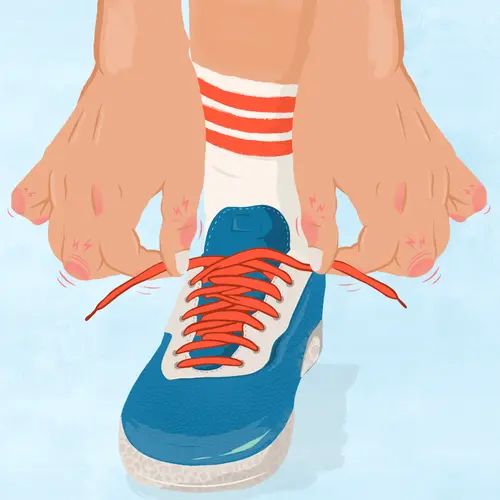The most common symptoms of all types of juvenile rheumatoid arthritis -- also called JRA or juvenile idiopathic arthritis (JIA) -- are persistent joint swelling, pain, and stiffness that typically is worse in the morning or after a nap. Other symptoms can include:
The pain may limit movement of the affected joint. Many children, especially younger ones, don't complain of pain.
JRA commonly affects the knees and joints in the hands and feet. One of the earliest warning signs of the disease is limping in the morning because of a stiff knee.
Besides joint symptoms, children with a form of the condition called “systemic JRA” have a high fever and a light skin rash. The rash and fever may appear and disappear quickly. Systemic JRA may cause the lymph nodes in the neck and other parts of the body to swell. In less than half of cases, internal organs including the heart and, very rarely, the lungs, may be involved.
Eye inflammation is a potentially severe complication that sometimes happens in children with another type of JRA called “pauciarticular JRA.” Eye diseases such as iritis and uveitis usually don’t happen for a while after a child first gets JRA.
Typically, there are periods when the symptoms of JRA are better or disappear ("remissions") and times when symptoms are worse ("flare-ups"). The condition is different in each child. Some may have just one or two flare-ups and never have symptoms again. Others get many flare-ups or have symptoms that never go away.
Some children with JRA may have growth problems. Depending on the severity of the disease and the joints involved, growth in affected joints and adjacent bones may be too fast or too slow. That may make one leg or arm longer than the other. A child's height may be affected and their overall growth could be slower than normal. Abnormalities of the jaw are also known to occur. Doctors are exploring the use of growth hormones to treat this problem.

